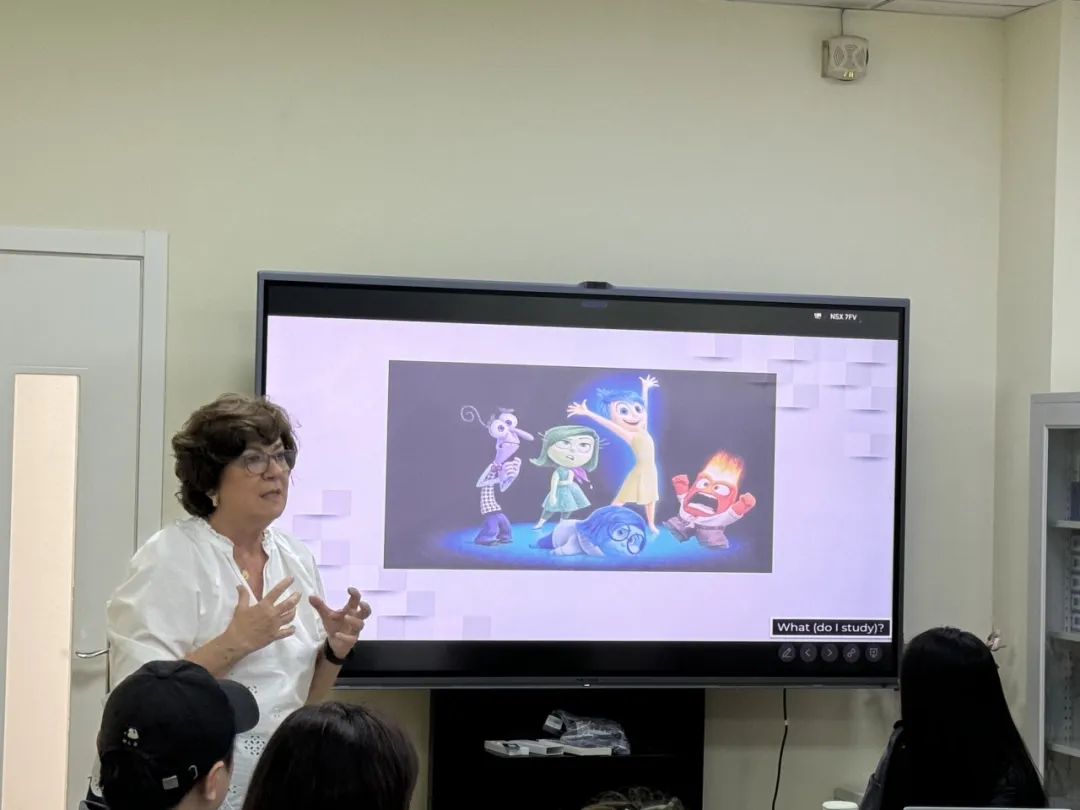
By Chen Yu
Translated by Guo Yishun
On the morning of March 25, 2025, Professor Carolina Acosta-Alzuru from Grady College of Journalism and Mass Communication from University of Georgia delivered an insightful lecture titled “Latin American Telenovelas and Turkish Dramas” at School of Journalism and Communication of Shanghai International Studies University. Hosted by Dean Wu Ying of SJC, the lecture brought a critical lens to the global dynamics of television drama production and dissemination, offering students a deeper understanding of the field through both theoretical and practical perspectives.
Drawing from her extensive research experience, Professor Acosta-Alzuru, a native of Caracas, Venezuela, began by analyzing the narrative structures, visual aesthetics, music, and production styles characteristic of Latin American telenovelas and Turkish dramas. She noted that Latin American telenovelas typically center on romance and emotional intensity, often using dramatic misunderstandings to drive the plot and engage audiences.
Throughout the lecture, she used video clips to compare the similarities and differences between the two regions’ productions. While both genres share commonalities in storytelling, broadcast patterns, and thematic concerns—such as family ethics and social issues—they differ in aspects like episode length, production quality, and narrative resolution. Notably, she emphasized that both genres increasingly address broader topics including women’s empowerment, legal and political challenges, and public health.
Professor Acosta-Alzuru also explored the intricate relationship between media, culture, and society, emphasizing that research in TV drama is best approached through interdisciplinary lenses such as cultural studies, women’s studies, and international media studies. She discussed the tension between domestic and international markets, especially in light of growing competition between traditional television networks and digital streaming platforms.
In discussing research methodology, Professor Acosta-Alzuru outlined a range of approaches: textual analysis for representation and identity, regulatory and policy analysis through media documents, production studies via interviews and on-site observation, and audience research using social media analysis and participant interviews. She highlighted the value and limitations of each method and underscored the practical challenges researchers face, including limited access to industry resources and cross-cultural communication barriers.
During the Q&A session, students engaged in discussions on the globalization of television, international content dissemination, and intercultural communication. Professor Acosta-Alzuru responded with thoughtful insights and advice, encouraging students to consider transnational television drama research as a means of fostering deeper cultural understanding and academic exploration.


 |Hongkou Campus|550 Dalian Road (W), Shanghai 200083, China |Songjiang Campus|1550 Wenxiang Road, Shanghai 201620, China
|Hongkou Campus|550 Dalian Road (W), Shanghai 200083, China |Songjiang Campus|1550 Wenxiang Road, Shanghai 201620, China